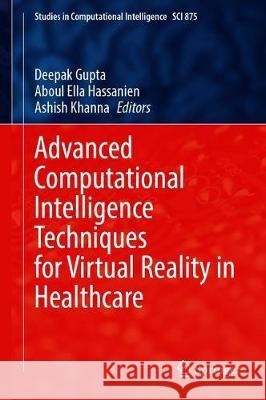Advanced Computational Intelligence Techniques for Virtual Reality in Healthcare » książka
topmenu
Advanced Computational Intelligence Techniques for Virtual Reality in Healthcare
ISBN-13: 9783030352516 / Angielski / Twarda / 2020 / 232 str.
Advanced Computational Intelligence Techniques for Virtual Reality in Healthcare
ISBN-13: 9783030352516 / Angielski / Twarda / 2020 / 232 str.
cena 644,07
(netto: 613,40 VAT: 5%)
Najniższa cena z 30 dni: 616,85
(netto: 613,40 VAT: 5%)
Najniższa cena z 30 dni: 616,85
Termin realizacji zamówienia:
ok. 16-18 dni roboczych.
ok. 16-18 dni roboczych.
Darmowa dostawa!
Kategorie:
Kategorie BISAC:
Wydawca:
Springer
Seria wydawnicza:
Język:
Angielski
ISBN-13:
9783030352516
Rok wydania:
2020
Wydanie:
2020
Numer serii:
000318395
Ilość stron:
232
Waga:
0.53 kg
Wymiary:
23.39 x 15.6 x 1.6
Oprawa:
Twarda
Wolumenów:
01
Dodatkowe informacje:
Wydanie ilustrowane











